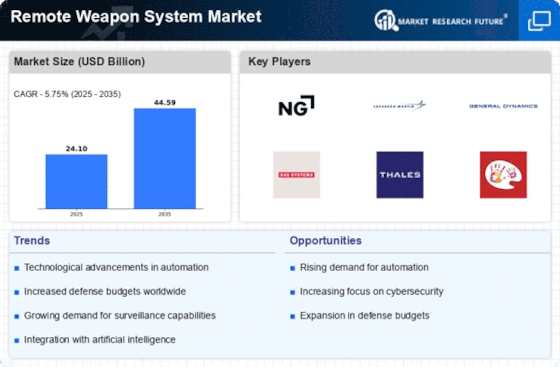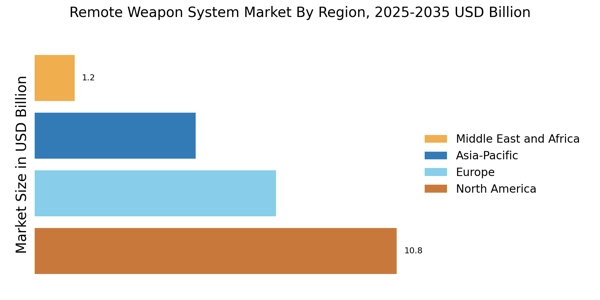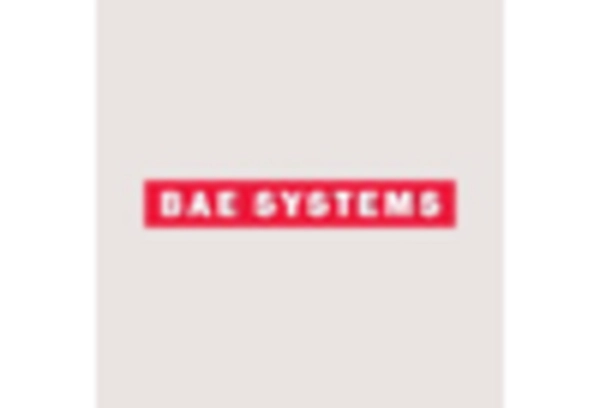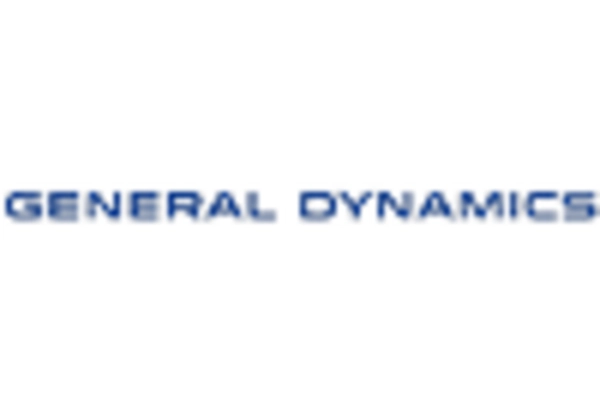Geopolitical Tensions
Geopolitical tensions continue to shape the landscape of the Remote Weapon System Market. Ongoing conflicts and territorial disputes have prompted nations to bolster their military capabilities, leading to an increased focus on remote weapon systems. The need for effective deterrence and rapid response capabilities has never been more critical. As a result, countries are investing in advanced remote weapon technologies to ensure they remain competitive. This trend is likely to drive market growth, as nations seek to enhance their defense postures in response to perceived threats. The Remote Weapon System Market is thus positioned to expand in tandem with these geopolitical dynamics.
Rising Defense Budgets
In recent years, many countries have increased their defense budgets, which has a direct impact on the Remote Weapon System Market. This rise in funding is often attributed to heightened security concerns and the need to modernize military capabilities. For instance, defense spending in various regions has seen an uptick, with some nations allocating a substantial portion of their budgets to advanced weapon systems. This financial commitment indicates a growing recognition of the importance of remote weapon systems in contemporary warfare. As a result, the Remote Weapon System Market is likely to benefit from this trend, with increased investments leading to enhanced research and development efforts.
Technological Integration
The Remote Weapon System Market is experiencing a surge in technological integration, particularly with advancements in artificial intelligence and machine learning. These technologies enhance the precision and effectiveness of remote weapon systems, allowing for improved target acquisition and engagement. As nations invest in modernizing their military capabilities, the integration of advanced technologies is becoming a priority. Reports indicate that the market for AI-driven systems is expected to grow significantly, potentially reaching a valuation of several billion dollars by 2030. This trend suggests that the Remote Weapon System Market will continue to evolve, driven by the need for more sophisticated and efficient weaponry.
Shift Towards Unmanned Warfare
The shift towards unmanned warfare is a pivotal driver in the Remote Weapon System Market. As military strategies evolve, there is a noticeable preference for unmanned systems that can operate in high-risk environments without putting personnel in danger. This trend is reflected in the increasing procurement of drones and remote-operated weapon systems by various armed forces. Market analysis suggests that the demand for unmanned systems is projected to grow at a compound annual growth rate of over 10% in the coming years. This shift not only enhances operational efficiency but also aligns with the strategic objectives of many nations, thereby propelling the Remote Weapon System Market forward.
Increased Focus on Cybersecurity
As the Remote Weapon System Market evolves, there is an increasing emphasis on cybersecurity measures. The integration of advanced technologies in weapon systems raises concerns about vulnerabilities to cyberattacks. Consequently, defense contractors and military organizations are prioritizing the development of secure systems that can withstand potential cyber threats. This focus on cybersecurity is likely to influence procurement decisions and drive innovation within the Remote Weapon System Market. Reports indicate that investments in cybersecurity for military applications are expected to rise, reflecting the critical need for robust defense mechanisms in an increasingly digital battlefield.

















